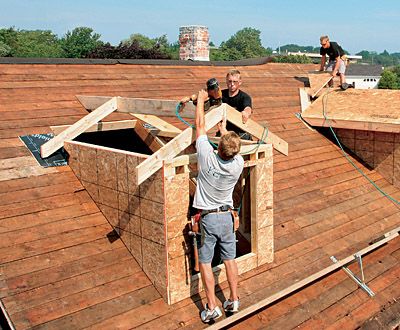
I’ve built about 20 new houses for other people, and two for my own family. Those two were the hardest of all. For two main reasons, it’s a heck of a lot easier to build them for other people. First, when building for other people, it’s a job. You go home at night and for at least some of the weekend. Maybe you take vacations. When building for yourself, you leave your job and go to work on the house nights, weekends, and vacations. It’s a second full-time job, and it’s physically exhausting. Second, when building for other people, it’s a job. You don’t have the same emotional investment as when building for yourself. Then, you’re spending a ton of borrowed money making a house that’s exactly as you want it, which may or may not be exactly as your spouse wants it, and the process is emotionally exhausting.
I don’t mean to suggest that you shouldn’t undertake building a new house just because it’s exhausting. There is truth to the old saw that what doesn’t kill you makes you stronger, and the financial and personal benefits that accrue from building your own house can make the hardship worthwhile. And there are ways to alleviate the stress and fit the process to your personality, abilities, and budget. You might simply hire a builder and sign some checks. You might be the general contractor, hiring and scheduling subcontractors. Or you might nail the house together yourself, hiring a few specialty contractors or even none at all. The trade-off is time and stress for money. Each approach will have good and bad aspects that will affect you in different ways depending on your makeup. Just be aware of the toll that building can take, and honestly assess your ability to handle it. More than once I have seen a new house drive couples to divorce. Talk about an emotional and financial train wreck!
I grew up in a house that my father was literally building around us. Sawdust on the kitchen floor seems normal, and the smell of fresh-cut pine makes me feel all warm and fuzzy inside. I get antsy if I’m not facing a huge project. Plus, I’ve spent the last 35 years involved in construction. Clearly, I’m a nail-it-together-yourself kind of guy. One big advantage is that doing much of the work yourself leverages the budget; by hiring fewer people, there’s more money to spend on better materials, more space, nicer property, and so forth. In fact, that sweat equity is what allowed me to build a new family home in the first place. Of course, sweat equity has limits, because even in these days of low interest rates, money has time value. Also, you have to live somewhere, and building usually means maintaining two domiciles, a costly proposition. Finally, your own time has value. You may prefer to use it doing things like taking vacations.
Nailing a house together yourself takes a lot of time and may never seem finished. If you can’t handle that, then you can still leverage the budget (but to a lesser degree) by general-contracting the job yourself. That is physically easier and can definitely be faster. I’ve seen a lot of DIYers pull it off, but it’s by no means stress free. You really do need to know how a house goes together and what the expectations of the various trades, suppliers, and inspectors are to make this work. You also need to find the subcontractors to work on the house. Some of them may sense inexperience and either walk away from the opportunity or bid a bit higher because they expect some glitch to occur that wouldn’t were they working for a professional GC. Hiring professionals such as an architect and a site engineer to guide you can help significantly. You’ll probably need to hire one or both of these professionals for design work in any event, and they may also be willing to provide postdesign consultation. Expect to pay more for that.
The simplest and usually the fastest approach, but also the most costly, is to hire a general contractor. It’s the most costly because the GC gets paid for his or her time, expertise, and connections. It’s the simplest because you don’t have to do more than make design decisions and sign checks. In fact, you might not even get to sign checks, as many banks cut construction-loan checks directly to the contractor.
Which brings up another point. With the nail-it-together-yourself and GC-it-yourself options, unless you have documentable construction experience, you might have a hard time convincing a bank to fund your project. I’m no finance expert, but I’ve always had better luck getting smaller, local banks to lend me construction money. They tend to be more flexible and responsive than larger, national banks. That said, the changes to banking regulations that came out of the recent recession have generally made it harder to borrow money. You may need to talk to several banks or have other collateral in order to get the money you need.
No matter which approach you take, building a house can be an act of affirmation and a fulfilling experience. As Jimmy Dugan (Tom Hanks’s character in A League of Their Own) said, “Of course it’s hard. It’s supposed to be hard. If it were easy, everybody would do it. Hard is what makes it great.”
Fine Homebuilding Recommended Products
Fine Homebuilding receives a commission for items purchased through links on this site, including Amazon Associates and other affiliate advertising programs.

Handy Heat Gun

8067 All-Weather Flashing Tape

Affordable IR Camera
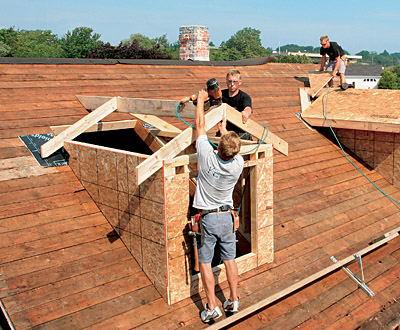

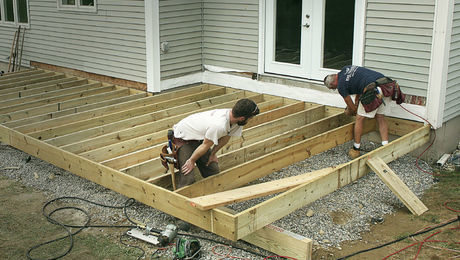


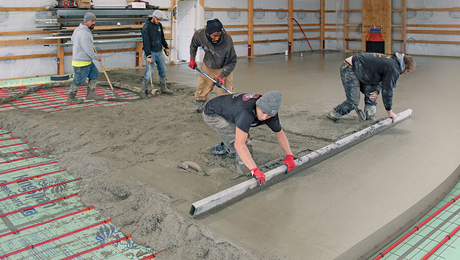


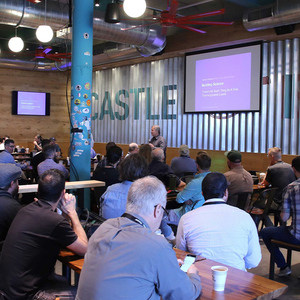



















View Comments
Of course it would be harder to build houses for your family. Exactly because of the emotional investment. Unwritten law says it's way more difficult to impress someone you rally want to impress than random people.